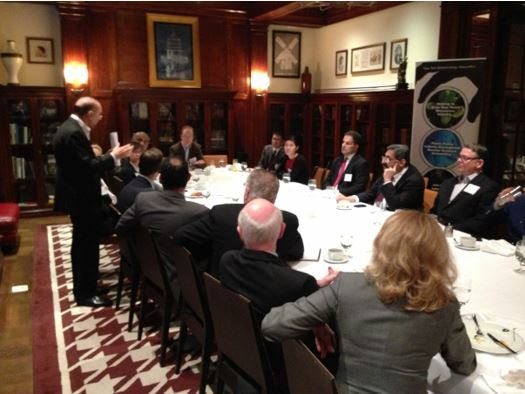CEOs have the most stressful and exhausting jobs in the sphere of business. The slightest blunder on the part of the CEO, and the entire organization can be drastically affected. From providing resources to networking, overlooking the company’s performance and making long term strategic decisions for the company, all these duties and responsibilities are parts of the CEOs job profile.
Networking is one of the most crucial duties that a CEO has to perform. However a lesser-known fact is that CEO’s of even the biggest companies across the globe are making networking blunders that they aren’t even aware of. Here’s a list of networking blunders that most CEOs are making.
Building a Network of People You Know Nothing About
One of the most common networking blunders of a CEO is creating a network of people that he knows nothing about, or building a network of people who he (and the company) has absolutely nothing common with. A valuable professional relationship has more chances of blossoming and invoking positive results to the organization if both parties have common personal interests or take the time to get to know each other on a personal level. Mere exchanges of visiting cards at a conference or conventions are just not enough to cut the deal.
Sometimes it is better to meet two or three people on more profound level than to stand on the side or leave a function early and have an employee hand out 200 business cards.
You don’t Listen Enough
When attending a business conference or convention it is absolutely essential for you to listen to other people’s stories and experiences. You are never going to learn anything new from listening to yourself talk or one of your lieutenants since you already know what they do and much of what they are going to say. So for a change listen to what others have to say. You never know, you may just find out that a larger company is interested in purchasing a stake in your company and you wouldn’t want to miss out on such an amazing opportunities.
Hiring the Wrong People
Often CEOs hire new employees based solely on their educational qualifications and experience. Though these are necessary requirements, a CEO needs to ensure that the people he takes on board are on the same wave length as the other employees and the CEO himself. If a person has excellent qualifications and experience but his thought process is contradictory to everyone else’s on the team, it would just lead to friction amongst the team members and tension in the organization.
Strong Dependency on Social Networking
The past decade has seen a rise in dependency on social networking. Most CEOs are following this trend and attempting to widen their network through social networks. Though it may seem easier and less intimidating to communicate and network through emails or over the phone, the most ideal way to widen your network is through interaction in person. Personal interaction gives you a clearer picture about the person and more clarity on what common interests the both of you share.
You can feel it as well. Talking in person, you get to understand the person much more than over the phone and even compared to a Skype video conversation which is awesome but not the same. It is certainly better than nothing though.
Judging People on their Appearance
A common networking blunder that CEOs across the globe make is judging people based on their appearance. If the CEO has reason to believe that the person doesn’t look important, he may not even attempt to interact. Stop being fooled by appearances (John Kerry looks important but look at the deal he just made with Iran, the chaos in the Middle East, and all problems Putin is causing – is John Kerry effective?). Make it a point to interact with people at all levels. You never know when you might miss out on networking with someone who has fantastic potential just because of their simple demeanor.
Networking is a fantastic way to expand your business and its operations, but just ensure that you aren’t making unintentional blunders that may be detrimental for your organization while networking.

